Why You Should Recycle Old Car Parts?
November 3, 20236 Emerging Technologies In The Metals Recycling Industry
November 23, 2023What is Scrap Metal? Everything About Scrap Metals
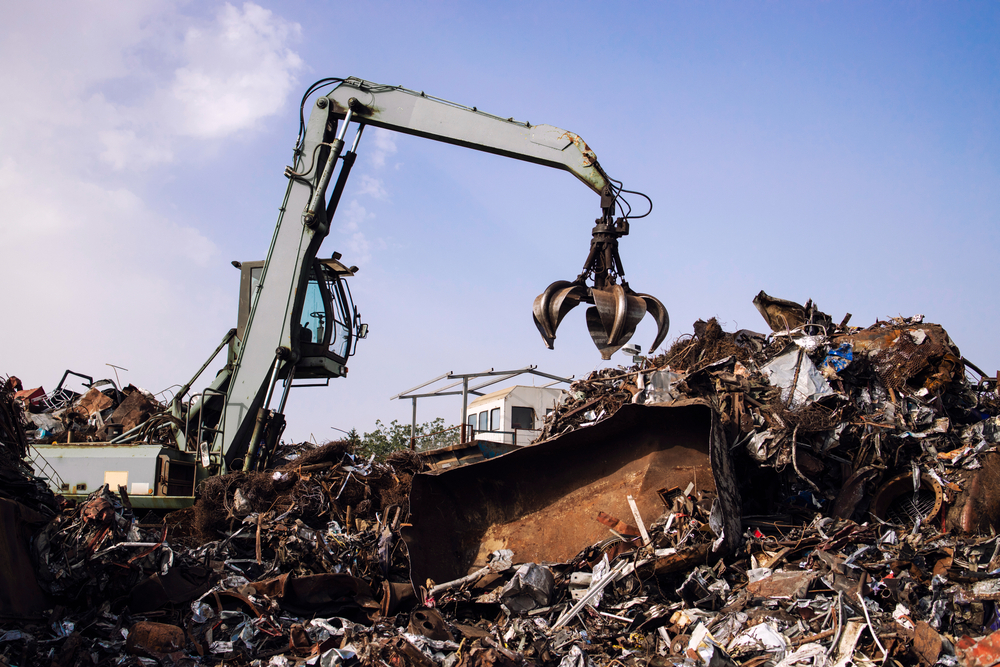
We sometimes ignore the things near to us as considering them extra and unusable. Oftenly, opt the option of throwing them away. Metal is one of them. Before we start explaining the importance, types and use of scrap metal, let’s just play a small game. Look around you and point out particular things containing metal. Think for a while that how much metal is being used regularly and almost in every useful gadget.
West Coast Metal has written a very informative article to aware the masses regarding “what is scrap metal?”
Keep reading…
What is Scrap Metal? Comprehensive Guide
Scrap metal is a discarded metal that can be recycled and repurposed, often found in products or structures that served essential functions in daily life. It comes in various forms, such as old car parts and unused construction materials.
As these products reach the end of their lifecycle, the metals within them retain their value, ready for transformation and reuse. These metals are categorized into ferrous (containing iron) and non-ferrous (not), with unique properties and applications.
However, scrap metal is more than just discarded pieces; it plays a crucial role in environmental conservation and the global economy. Scrap metal is typically collected, processed, and recycled to be used in the production of new metal products.
Significance of Scrap Metal
Recycling scrap metal reduces the need for extracting and processing raw materials, conserving natural resources. This is important in industries heavily reliant on metal production.
Recycling scrap metal reduces the environmental impact associated with mining, transportation, and processing of raw metals. It helps decrease energy consumption and greenhouse gas emissions.
Scrap metal recycling is a significant industry, contributing to the economy by providing raw materials at a lower cost than virgin materials. It also generates employment in collection, processing, and recycling activities.
Proper disposal of scrap metal minimizes landfill usage and the associated environmental hazards. Recycling instead of discarding metal helps manage waste more sustainably.
Origin of Scrap Metal
| Manufacturing | During the production of metal products, defective materials are often generated, resulting in scrap. This has been done as metal trimmings, rejected parts, and other by-products. |
| Production | Metal scraps are generated during the production of metal products, including trimmings, rejected parts, and by-products. These scraps can be recycled instead of discarded. |
| Building Deconstruction | Metal components like steel beams, wiring, and plumbing are salvaged as scrap metal during demolition or renovation. |
| Construction Waste | Construction sites generate scrap metal through offcuts and discarded items. |
| Obsolete Electronics | Discarded electronic devices contain valuable metals like copper, gold, and silver, which can be recovered through recycling. |
| Automobiles | End-of-life vehicles contain steel and non-ferrous metals from engines and transmissions. |
| White Goods | Appliances like refrigerators, washing machines, and ovens contain recyclable metal components, preventing them from ending up in landfills. |
| Appliances | Even smaller household items like toasters, irons, and microwaves contribute to the scrap metal stream when they reach the end of their usable life. |
Types of Scrap Metal
Ferrous Metals: Ferrous metals are characterized by the presence of iron as their primary element, shaping their properties significantly. Notably magnetic, these metals are prone to rusting when exposed to moisture and oxygen.
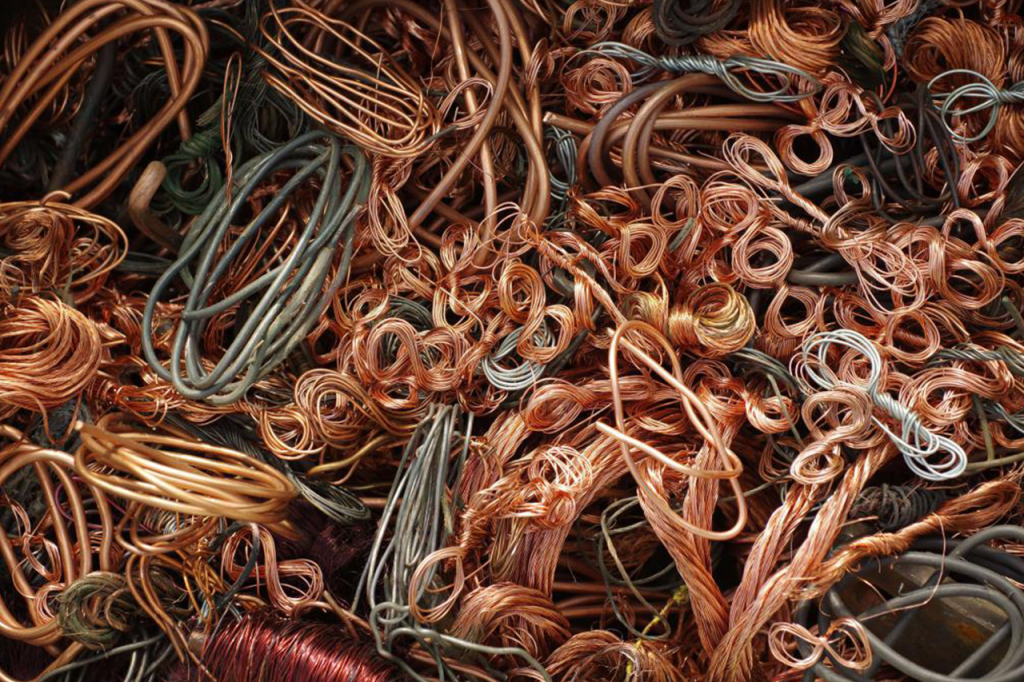
- Iron: A ferrous metal extensively used in construction and manufacturing.
- Steel: An alloy of iron and carbon, having various types like carbon steel and stainless steel. Steel finds alot in construction, automotive, and industrial applications.
Non-Ferrous Metals: Contrasting ferrous metals, non-ferrous metals lack iron as their primary component. Generally non-magnetic, these metals shows greater resistance to corrosion.
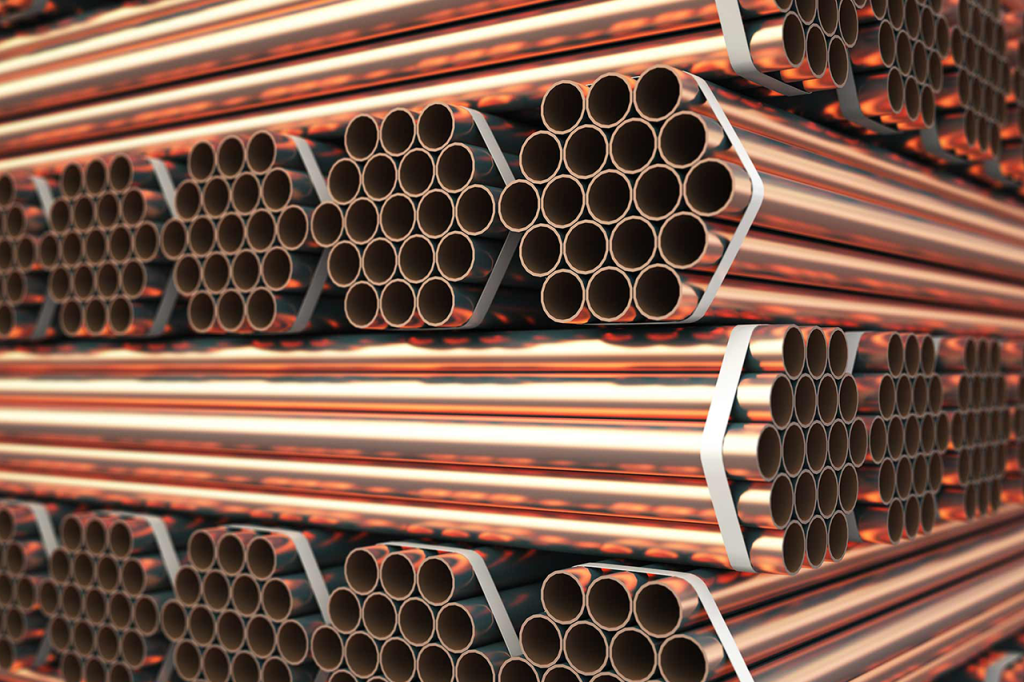
- Aluminum: Known for its lightweight and corrosion resistance, aluminum is heavily employ in aerospace, construction, and packaging.
- Copper: Recognized for its excellent conductivity, copper utilizes in electrical wiring, plumbing, and various electronic components.
Exotic Alloys: Exotic alloys encompass metals and metal alloys that are less common and may possess unique properties, setting them apart from more conventional materials.
- Titanium: Renowned for its strength, corrosion resistance, and low density, titanium sees applications in aerospace, medical implants, and military endeavors.
- Tungsten: Acknowledged for its high melting point, tungsten employs in manufacturing and scenarios where hardness and durability are paramount.
- Nickel-Based Super-alloys: These alloys, containing nickel, chromium, and other elements, find utility in extreme environments such as aerospace propulsion systems and gas turbines.
Scrap Metal Recycling
Energy:
- Scrap metal recycling significantly cuts the energy needed for metal production compared to the extraction and refining of raw materials.
- The processing of recycled metal often demands less energy, playing a role in overall energy conservation.
Sustainability:
- Recycling scrap metal diminishes the necessity for traditional, energy-intensive metal production methods, reducing greenhouse gas emissions.
- Through the utilization of recycled metal, the industry can diminish its carbon footprint and alleviate the environmental impact tied to metal manufacturing.
Job Opportunity:
- The scrap metal recycling industry generates job opportunities across various stages, including collection, sorting, processing, and manufacturing.
- Job creation contributes to local economies, fostering community sustainability.
Rich Resource:
- Scrap metal recycling preserves natural resources by lowering the demand for virgin materials.
- This action not only prolongs the lifespan of existing resources but also lessens the environmental impact of mining and extraction activities.
Arranging:
- Collection of scrap metal occurs from diverse sources, including industrial facilities, construction sites, and consumer products.
- The collected metal undergoes sorting based on type (ferrous or non-ferrous) and other characteristics.
Processing:
- Following sorting, shredding equipment processes scrap metal to reduce it into smaller pieces.
- This enhances the efficiency of subsequent melting processes.
- The melted metal refines in furnaces to separate impurities and create molten metal.
Production:
- Molten metal is cast into ingots or other forms for use in manufacturing new products.
- The utilization of recycled metal in the production of goods spans a wide range of industries, from construction to automotive manufacturing.
- Implementing recycled metal in manufacturing practices reduces the demand for virgin materials, promoting sustainable and eco-friendly production.
Challenges in Scrap Metal Recycling
- Contamination arises from the presence of non-metallic materials, such as plastics, rubber, and chemicals, in scrap metal. These impurities can affect the quality of recycled metal.
- Contamination hampers the efficiency of the recycling process by requiring additional steps for sorting and purification. It can also result in lower-quality recycled metal, affecting its usability in various industries.
- Developing advanced sorting technologies is essential for efficiently separating different types of scrap metal. Innovations may include improved sensors, automated sorting systems, and artificial intelligence (AI) applications.
- Enhancements in recycling processes, such as more efficient shredding and melting techniques, are crucial for increasing overall recycling efficiency. Technological advancements can help reduce energy consumption and enhance the quality of recycled metal.
Most Valuable Scrap Metal
Copper:
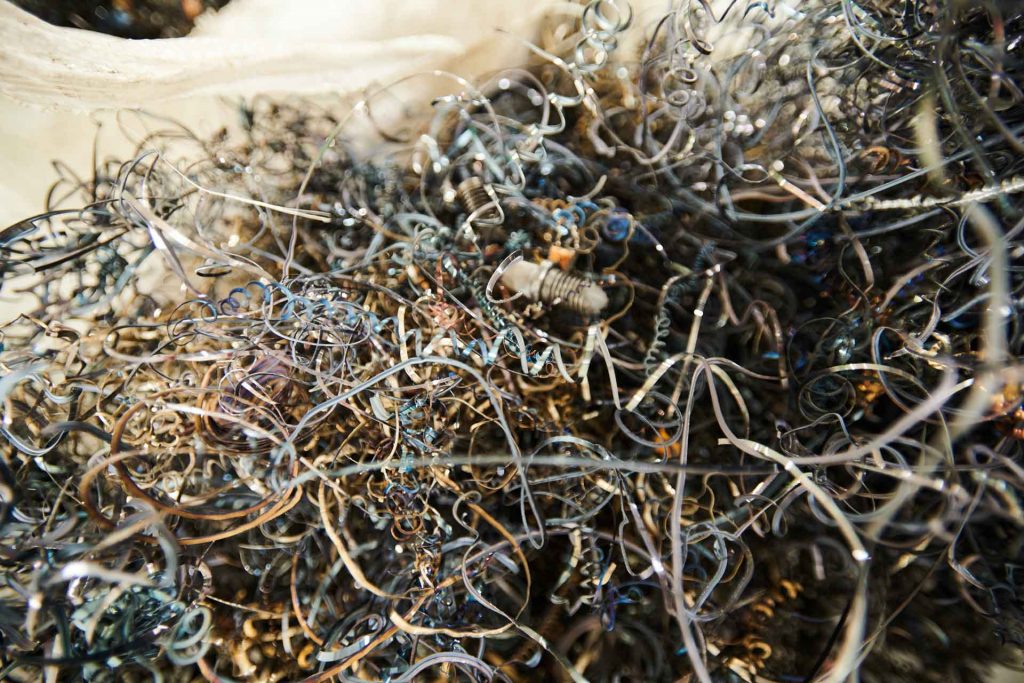
- Highly sought after for its excellent conductivity, copper is a versatile metal finds electrical wiring, plumbing, and electronic components.
- Copper is one of the most valuable scrap metals due to its conductivity and recyclability.
Aluminum:
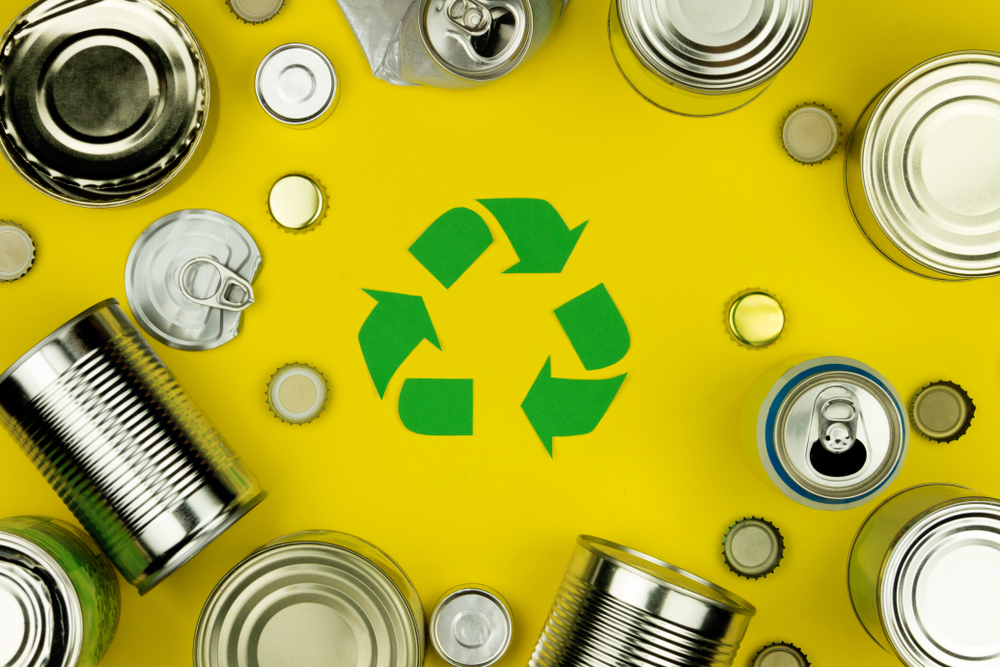
- Lightweight and corrosion-resistant, aluminum finds extensive use in aerospace, construction, and packaging industries.
- Its recyclability and widespread applications contribute to the value of aluminum as scrap metal.
Brass:
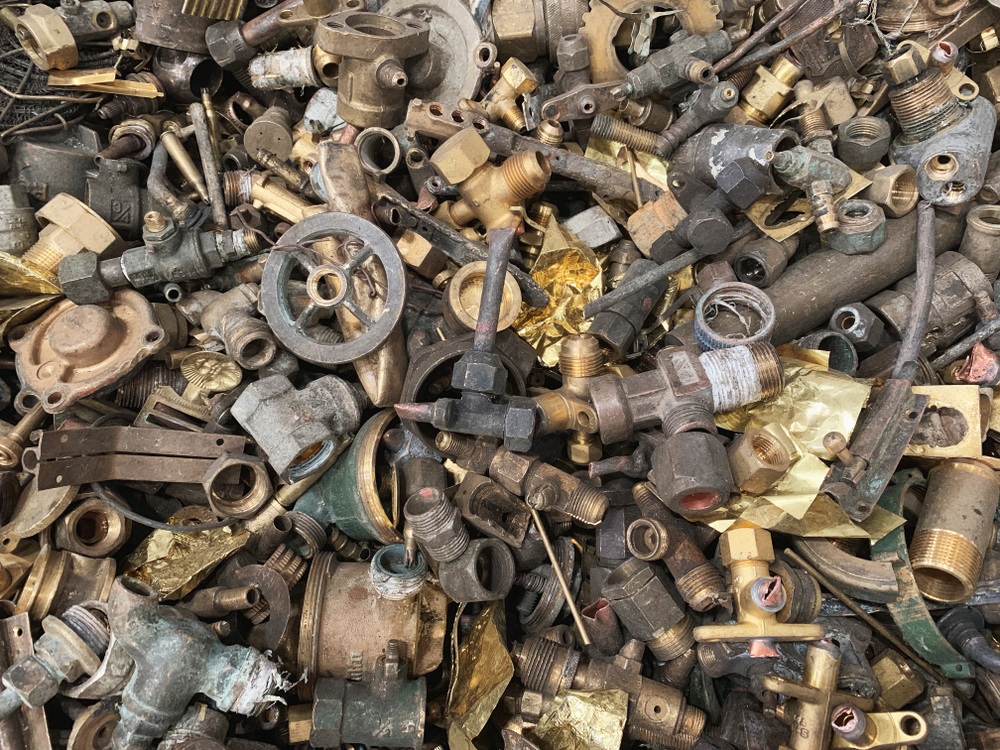
- A copper-zinc alloy, brass is known for its durability, corrosion resistance, and attractive appearance, making it valuable in various applications.
- Brass scrap is sought after for recycling in industries such as plumbing, electrical, and decorative arts.
Stainless Steel:
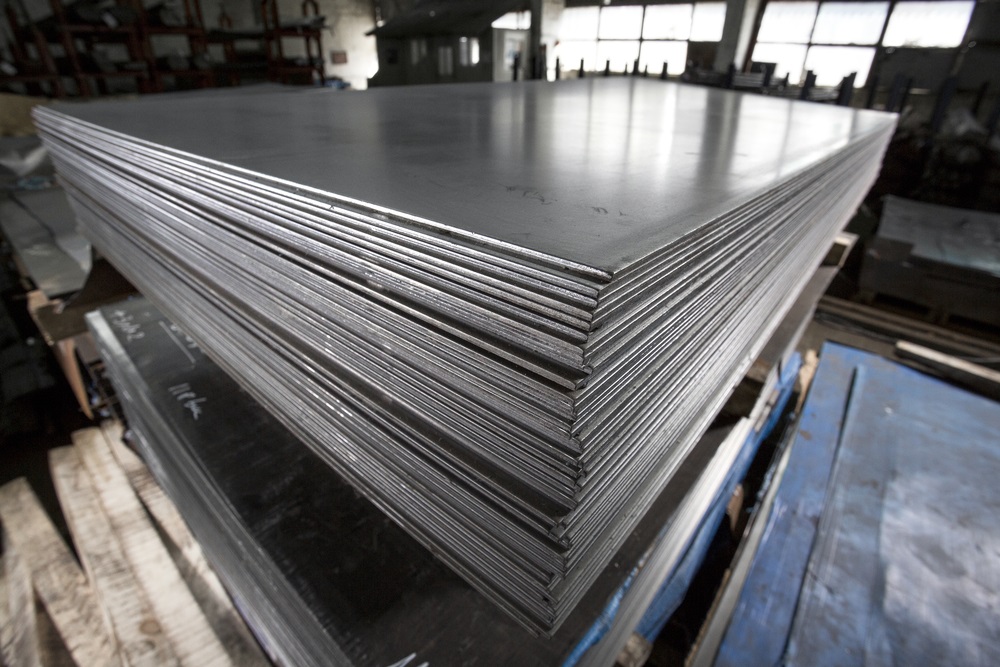
- An alloy of iron, chromium, and other elements, stainless steel prized for its corrosion resistance and durability, making it suitable for diverse applications.
- The recycling of stainless steel is valuable due to its resistance to rust and corrosion.
Gold:
- While not as commonly found in everyday scrap, electronic devices such as computers and smartphones contain gold in small quantities due to its excellent conductivity.
- The rarity and high demand for gold make it exceptionally valuable when recovered from electronic scrap.
Silver:
- Like gold, silver is present in small amounts in various electronic devices, contributing to its value.
- The conductivity and rarity of silver enhance its value as a recyclable metal.
Platinum:
- A precious metal with high resistance to corrosion, platinum finds in catalytic converters and electronic components.
- Platinum is one of the most valuable metals due to its scarcity and critical applications in industry.
Palladium:
- Similar to platinum, palladium is use in catalytic converters and electronics, known for its high melting point and chemical stability.
- The increasing demand for palladium in the automotive industry contributes to its high scrap value.
Lead:
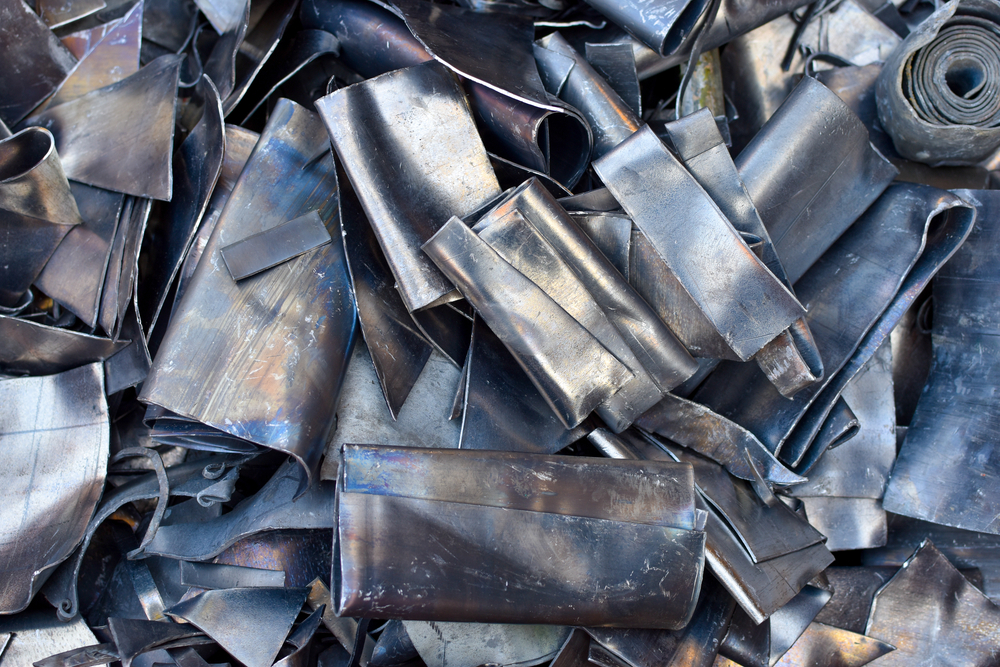
- Known for its density and malleability, lead has applications in batteries, construction, and radiation shielding.
- The recycling of lead is essential due to its potential environmental impact, and it remains valuable in various industries.
Nickel:
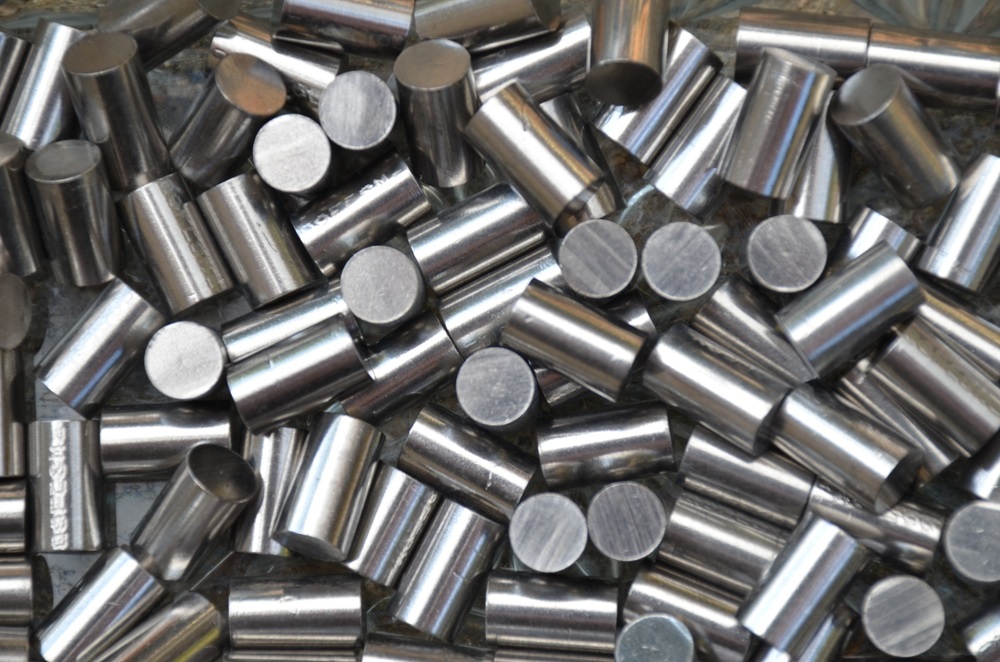
- A versatile metal with corrosion resistance, nickel found in stainless steel, batteries, and various alloys.
- Nickel scrap is valuable for its role in producing corrosion-resistant alloys and other industrial applications.
Conclusion:
Scrap metal is a valuable resource with immense potential for environmental sustainability and economic benefits. West Coast Metal supports green and sustainable services. Responsible practices preserve resources and contribute to a circular economy. Recognizing the value of scrap metal is important and valuable for both businesses and individuals to contribute to a greener, more efficient future.
